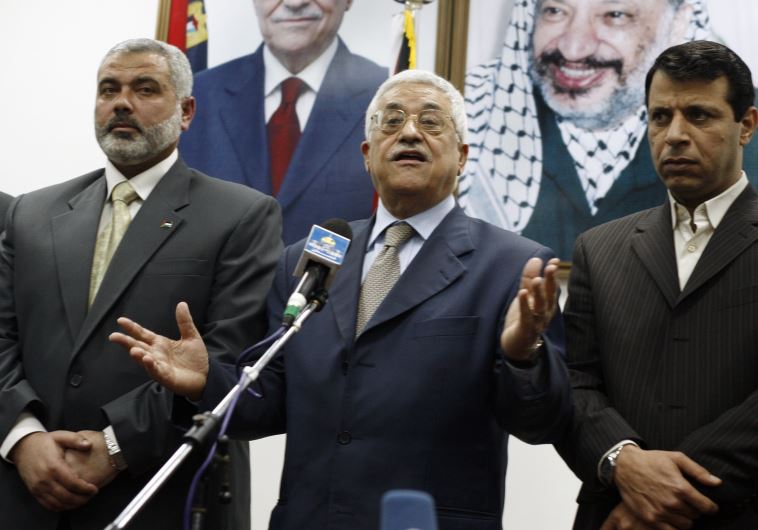JPost Editorial: Palestinian elections
It is unlikely that elections held in either Gaza or the West Bank will be particularly free or fair...
 Palestinian president Abbas stands between PM Haniyeh and senior Fatah leader Dahlan in Gaza(photo credit: SUHAIB SALEM / REUTERS)
Palestinian president Abbas stands between PM Haniyeh and senior Fatah leader Dahlan in Gaza(photo credit: SUHAIB SALEM / REUTERS)